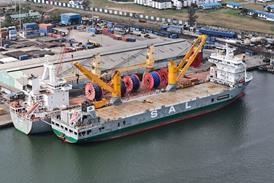The Cargo Integrity Group (CIG) is calling on national administrations to carry out and report the findings of their container inspection programmes, and for the International Maritime Organization (IMO) to continue collating and publishing the results in a publicly accessible form, to support efforts to improve safety in the carriage of goods by sea.
This includes conducting routine inspections of freight containers and the cargoes packed in them in a consistent manner – resolutions which were adopted more than 20 years ago by IMO members. The findings are to be submitted annually to the IMO for collation and reporting, allowing for any necessary safety improvements to be made. However, analysis conducted by partner organisations in the CIG shows that less than 5 percent of 167 national administrations covered by the agreement are regularly submitting the results of their inspections to IMO in publicly available form.
Because of this lack of data, according to CIG, the IMO is unable to draw reliable conclusions regarding how to improve the safety and sustainability of shipments by sea.
CIG partners point to common and consistent reporting of inspection findings as being crucial to help target communication and training programmes aimed at improving awareness of the requirements and recommended safe practices. These include the likes of the International Convention for the safety of Life at Sea (SOLAS) convention and the International Maritime Dangerous Goods (IMDG) code.
Fires and explosions aboard merchant ships has been thrown into the spotlight over the past couple of years, with losses mounting. According to the CIG, these incidents illustrate the dangers posed by poorly packed, mishandled or mis-declared containerised shipments.
Although circumstances of these incidents remain under investigation, the CIG is worried that measures are not being applied correctly and opportunities for improving compliance standards are going amiss.
















